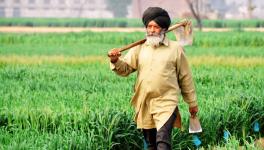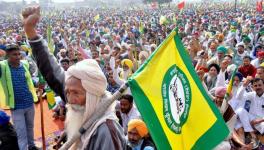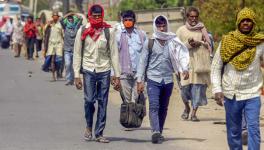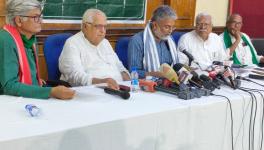How True are Claims About Bonded Migrant Labourers in Punjab?
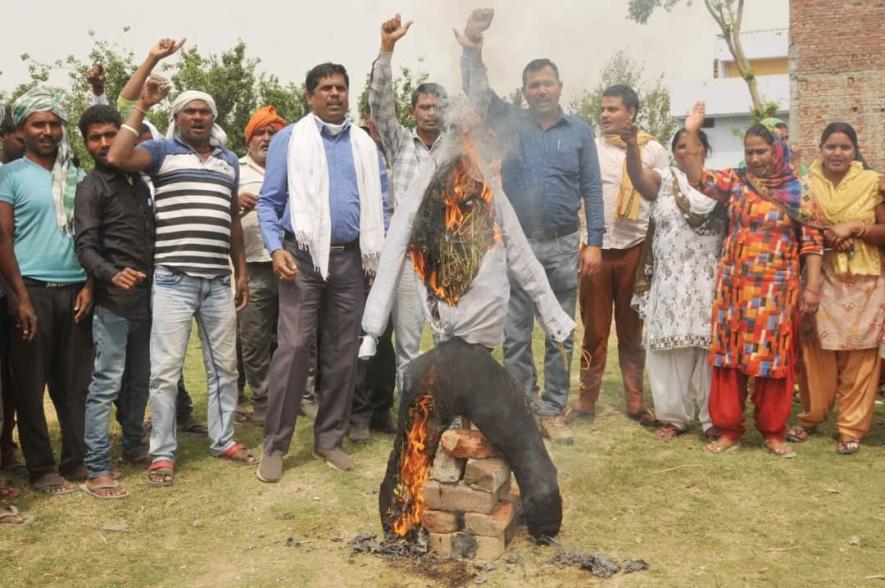
In a letter written on 17 March to the Chief Secretary and Director General of Punjab Police, the Union Ministry of Home Affairs has said that migrant labourers are being forcibly intoxicated and made to work in the border districts in Punjab. The letter says that even after extracting more work from the labourers, their wages are not paid.
The letter stresses the origin of most labourers who work in the border districts of Punjab in “poor families of backward areas of Uttar Pradesh and Bihar”, and alleges that human traffickers bring them to Punjab by luring them with good wages. However, when they reach Punjab, they are severely exploited and inhumanely treated, the letter says.
The Union Home Department says it got this information from an investigation done by the Border Security Force or BSF in the Amritsar, Gurdaspur, Abohar, and Ferozepur districts. This letter from the Centre has heated the social environment in Punjab. Except for the state BJP unit, all other political parties and peasant organisations have protested the bonded labour issue is being used as a tactic to discredit Punjab, end the peasant movement, and break the mutual bond between farmers and migrant labourers.
The Union Home Ministry had to clarify after the protests that it did not release the report with a bad intention. According to Punjab Chief Minister Captain Amarinder Singh, “The Punjab government has conducted the investigation and this information is not based on facts.” The Chief Minister has said that the letter from the Center is an attempt to put a blemish on the credibility of the farmers.
The BJP has earlier called farmers terrorists, urban Naxals, goons, and so on to damage the peasant movement at its very root. The information about people being caught near the international border is based on flimsy estimates. He also said that appropriate action has already been initiated in every case; most of the labourers are living with their families.
Neither the figures mentioned in the letter nor the central report has been 'collected' by the BSF, Amarinder Singh said. For, while the letter from the Ministry of Home Affairs talks about having found bonded labourers in the Abohar area, no such case has come to light in either Abohar district or neighbouring Fazilka.
Amarinder Singh also said that it is not the job of the BSF to investigate bonded labour in any case. Their responsibility is only to catch a person roaming in suspicious circumstances on the outskirts and hand them over to the local police. The Chief Minister said that all 58 instances mentioned by the central government have been investigated in detail, and none of them have revealed anything about bonded labour.
Commenting on the controversy, Buta Singh Burajgil, leader of the Bharatiya Kisan Union Ekta (Dakonda), said, “The relationship between farmers and migrant laborers in Punjab is almost five decades old. If they had a relationship of bonded labour, their relations would not have lasted for such a long time.”
When it is time to plant paddy, farmers in Punjab bring migrant labourers to their villages from the railway stations, assuring them of minimum wages. It is natural to have tension in the relationship between the worker and the boss, but the relationship only lasts for a long time when both sides behave properly,” said Burajgil, adding, “Because the farmers of Punjab fulfill their promise to the workers, many migrant workers have started living here permanently."
Satnam Singh Pannu, the head of Kisan Mazdoor Sangharsh Samiti, an organisation that is actively working among farmers and labourers in the border areas of Punjab, said, “The Modi government is trying to drive a wedge between the farmers and migrant laborers of Punjab. It has adopted every tactic possible to bring the peasant struggle to an end—this is also a new trick.” According to Pannu, his organisation has never encountered a case of bonded labour in the border districts.
Pendu Mazdoor Union leader Kashmir Singh Ghugshor told, “We have not been able to abolish bonded labour from our country yet. Maybe, even in Punjab, there is 0.5-1% of bonded labour. But the way the Center is blaming Punjab makes it suspicious. This is because most farmers in the border areas are consumed by the burden of the farm crisis. They cannot take on bonded labourers, for most farmers do their own agricultural work here.”
On the other hand, on April 4, Punjab’s migrant labourers who work in the border areas staged a protest in Amritsar against the Union Home Ministry. They burnt effigies that represented the central government and raised slogans against it and the Home Minister. The protesters said the “BSF report” is nothing but an attempt to divide the migrant labourers, split the unity of farmers, and dent the Punjabi brotherhood.
Mahesh Verma, leader of a migrant workers’ organisation, said, “People from Uttar Pradesh, Bihar, and other states have settled here in Punjab for many decades. They have not only built houses here but also started their businesses. Even today, people from other states settle down in Punjab. The migrant workers stand fully with the farmers who are fighting the farm laws.” He said he suspects this central report was released because of the ongoing peasant struggle.
Ramlal, a migrant laborer who works in a village along the border in Gurdaspur, said he has been working in Punjab for 40 years. He came here as a labourer but now owns a small business. His children are studying in “good schools”", he said, and added, “If the matter of bonded labour were true, I would not have progressed here."
According to the Bonded Labour System Abolition Act, 1976, it is illegal to not pay a labourer on time, or pay a worker below the minimum wage, or refusing to allow them to cease working at any place as per the workers’ desire. The well-known sociologist, Prof. Manjit Singh, has been researching the prevalence of bonded labour in Punjab. He said, “There was a great need for labourers during the Green Revolution in Punjab. During that time, many migrant workers came to Punjab, whom we can include in the category of bonded labourers according to the law.”
However, about two decades ago, the prevalence of bonded labour declined significantly in the state, leaving only a few such cases.
“Seen in the light of the Bonded Labour System Abolition Law, all workers engaged in [brick] kilns fall in the bonded category,” Manjit Singh explains. There are about 2.5 lakh kiln workers in Punjab. “Therefore, some form of bonded labour exists all over the country and it cannot be denied that it exists in Punjab as well. Governments should have abolished bonded labour. [Even] the Modi government is revealing its anti-worker mentality by introducing [new] anti-labour laws," he said.
Singh further said that he has “many questions” about the way the bonded labour issue has been raised. “Why did the Modi government remember this issue during the peasant movement, when farmers and laborers of Punjab are sitting together in Delhi? Bonded labour is also present in other states, what is the Centre doing there? All these questions force us to doubt the intention of the Centre. The job of governments is not to raise questions, but solve questions,” he said.
Punjab has a history of bonded labour since its feudal times. And there have been many worker struggles here as well. From time to time, there have been cases of conflicts, especially between dalit labourers and wealthy farmers. However, all political parties are opposing the letter sent by the Union Home Department to Punjab during the peasant struggle. Even the farmers and workers’ organisations see in it nothing but a strategic attempt by the Centre to discredit them.
The author is a freelance journalist. The views are personal.
Get the latest reports & analysis with people's perspective on Protests, movements & deep analytical videos, discussions of the current affairs in your Telegram app. Subscribe to NewsClick's Telegram channel & get Real-Time updates on stories, as they get published on our website.











